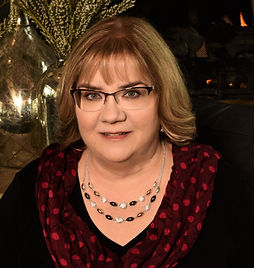
Have you ever played Upwords? What about Boggle? Bananagrams? All three games involve using letter tiles or cubes to create words. In Upwords, you try to build your own words upon others’ by stacking your tiles on top of theirs (leaving at least one of their original tiles). Upwords is one of my favorite games because I’m not forced to make my words quickly. (Except when other players stare at me and hum the theme from "Jeopardy!")
In Boggle, you try to make as many three-letter or higher words from a set of letter cubes that reset for each game. If any of your words match another player’s, you both scratch it off your list. Only words you’ve found that no one else did will count toward your score.
Bananagrams involves using letter tiles to create your own crossword puzzle. Each time you use a letter, you grab a new one from the pile. But the trick is to be the first one to use all your tiles, which also makes it a game of speed.
Since I'm a writer, most people think I would excel at these. But, more often than not, I find myself in the middle of the scoring pack or even at the bottom. Sometimes it's due to luck—if I draw an ‘x,’ ‘qu,’ or ‘z’ they might be difficult to play. Sometimes it's because of speed. While I'm trying to create the longest or most unusual word, others plunk down "are," "pat," and other three-letter words, thereby using their tiles more quickly.
Another obstacle involves not knowing about tiny, uncommon words. Like "qi," for example. (Qi=vital energy that is held to animate the body internally and is of central importance in some Eastern systems of medical treatment (such as acupuncture) and exercise or self-defense.) File that tip away to use the next time you play one of these games, lol.
But why all the interest in word games?

As writers, we’re encouraged to use the exact right word to describe a situation, feeling, or setting. We want to communicate better, to get our message across in the best way possible. We look at our prose and wonder, “Did I sound too preachy? Could my reader be confused in any way?” But it's not just writers who struggle with this. Everyone probably can recall a time when we said the wrong thing or our words came out sounding harsher than we intended.
Why is communication so difficult? Sometimes our interpretation of something doesn’t square with our audience. When I was a church secretary, our outside sign said God’s grace was free to all. The next day someone called, angry about our message. “How can you say God’s grace is free? That’s insulting! Jesus paid the ultimate price to give us that grace—He died for it!” I tried to explain what we meant, that because of Jesus’ death His grace was now free to us, but I don’t think I succeeded.
Sometimes miscommunication can be chalked up to the current feelings of the listener or reader. If I'm writing about spending money wisely, the person who’s already feeling guilty about their own purchasing could say, “I’m trying! Who does she think she is, telling me how to live my life?”
And let’s not forget about speaking “Christianese.” For those not familiar, it’s when I assume all my readers are Christians. I say, “We’ve been washed in the blood of Jesus.” All the Christians reply, “Amen! Hallelujah!” But a non-believer recoils and says, “Washed in blood? That’s disgusting!”

Let’s face it, I'll probably never get it right one hundred percent of the time. After all, I can’t know my readers’ mindsets or current feelings. Whatever I say or write can be misconstrued (ask any political candidate). And just like playing word games, I might rush to get my point across or search for big words when smaller ones would do. It's time for me to make a serious effort to communicate more clearly.
The Bible has a lot to say about communication: “The heart of the godly thinks carefully before speaking . . . ” (Proverbs 15:8 NLT). The apostle Paul says in 1 Corinthians 14:9 (NLT), “If you speak to people in words they don’t understand, how will they know what you are saying? You might as well be talking into empty space.”
I don’t want to write or speak into empty space. That’s like writing about God’s love and leaving the document in my computer folder. Or calling out about Jesus while standing alone in an abandoned warehouse with my audience three miles away. I hope to do better in my conversations, whether I’m speaking with a friend, writing a novel, or composing this blog. Because clear communication is vitally important—not merely a game of words.
Until next time,
Toni

.jpg)


Wise words. Communication from our hearts to others’ ears can so easily get lost in translation. I often have to ask God to “Keep watch over the door of my mouth” and my writing, and I have to remember to prayerfully listen before speaking. And still I don’t always get it right. Thankful for God’s grace.